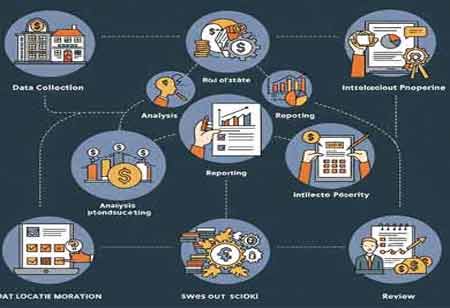CLOSE
Specials
- RegTech Europe
- Financial Risk Management APAC
- Investment Banking APAC
- Corporate Advisory APAC
- Regtech APAC
- Escrow Services
- Digital Banking Latam
- Trading Solutions APAC
- Treasury Management Europe
- CPA Firms Canada
- Financial Risk Management Europe
- Mortgage Broker
- Financial Licensing Europe
- RIA Advisory Europe
- FinTech Canada
- Financial Asset Management APAC
- Investment Banking Canada
- Payment Solution
- Lending Mangment Latam
- Payment Solution Europe
- Broker Dealer Firms Canada
- Alternative Investments Canada
- Financial Fraud
- Investment Management Latam
- Financial Health Europe
- Lending mangment
- Financial Marketing
- Proprietary Trading Europe
- Wealth Management
- FinTech
- Financial Brokerage Firm APAC
- Investment Advisory Europe
- Investment Advisory APAC
- Wealth Management MENA
- Claim Adjusting
- Claim Adjusting APAC
- Mergers and Acquisitions Consulting APAC
- Equipment Financing
- CPA Firms
- Mergers and Acquisitions Consulting Canada
- Investment Services
- Valuation Services Canada
- Wealth Management APAC
- Broker Dealer Firms
- Debt Collection Agencies
- Mergers and Acquisitions Consulting
- FinTech Europe
- Fintech Latam
- Financial Planning / Retirement
- Investment Management
- Financial Compliance
- Digital Banking Europe
- CFO Services
- Debt Collection Agencies Europe
- Wealth Management Europe
- Mergers and Acquisitions Consulting Europe
- Financial Restructuring Europe
- Financial Portfolio Management Canada
- Business Loan
- Payment and Card Latam
- Wealth Management Latam
- Mergers and Acquisitions Consulting Latam
- Tax Advisory Canada
- Trading Solutions Europe
- Alternative Investments
- Digital Insurance Europe
- Investment Services Latam
Weekly Brief
×Be first to read the latest tech news, Industry Leader's Insights, and CIO interviews of medium and large enterprises exclusively from Financial Services Review
Thank you for Subscribing to Financial Services Review Weekly Brief
Private Equity's Impact on Financial Services Employment
By understanding the nuances of PE's impact and staying ahead of emerging trends, European financial services professionals can navigate this dynamic landscape and secure their place in the industry's future.

By
Financial Services Review | Wednesday, January 15, 2025
Stay ahead of the industry with exclusive feature stories on the top companies, expert insights and the latest news delivered straight to your inbox. Subscribe today.
By understanding the nuances of PE's impact and staying ahead of emerging trends, European financial services professionals can navigate this dynamic landscape and secure their place in the industry's future.
FREMONT, CA: Private equity (PE) firms have emerged as a formidable influence in the financial services industry, affecting companies and their workforce. They can impact traditional roles and generate new opportunities. European job seekers can expect several notable trends in this evolving landscape. PE-backed firms prioritise efficiency and innovation, leading to an increased demand for professionals with expertise in financial modelling, data analysis, risk management, and digital transformation.
PE-driven companies require a workforce capable of adapting to changing priorities and embracing new technologies. Due to the leaner structure of PE-backed firms, high-performing individuals may find quicker paths to leadership roles. Understanding the skillsets in demand can help European professionals navigate the evolving financial services landscape.
For instance, the ability to collect, analyse, and interpret data is crucial for informed decision-making, making data scientists and analysts highly sought-after. The digital revolution in financial services requires professionals skilled in fintech, cybersecurity, and cloud computing. A strong understanding of the ever-changing regulatory environment is essential for navigating complex financial regulations. Effective communication, teamwork, and problem-solving skills are critical for success in any dynamic environment.
European financial services professionals should focus on continuous learning and upskilling to thrive in this evolving industry. Pursuing online courses, attending industry events, and networking with other professionals can help individuals stay current with the latest advancements. Embracing change and being willing to learn new skills as the industry evolves is essential for career growth. Connecting with professionals in PE-backed firms and building relationships can also open doors to new opportunities.
The effects of private equity (PE) on employment within financial services can vary significantly across sub-sectors. PE firms typically aim to streamline operations in investment banking and asset management. While some front-office roles may be affected, positions in compliance and technology often see an increase. In the insurance sector, PE involvement focuses on cost optimisation and product innovation. This can lead to job losses in back-office functions but also creates opportunities in data analytics and risk management. Similarly, in retail banking, PE influence can drive digital transformation and automation. Although teller positions might be reduced, new roles in digital banking and customer experience can emerge.
The impact of PE on employment also varies across European countries. Factors such as existing labour regulations, the size and maturity of the PE industry, and the dominant sub-sectors within financial services play a significant role in how jobs are affected. Strong labour unions can buffer against job losses resulting from PE interventions. They can negotiate severance packages and ensure fair treatment of employees during restructuring processes.
It is important to note that not all PE investments focus solely on short-term cost-cutting. Some firms adopt a long-term perspective, investing in sustainable growth and employee development, which can lead to net job creation. Open communication between PE firms, target companies, and employee representatives is crucial for managing workforce transitions. Transparency can help reduce anxiety and build trust during periods of change.
While predicting the future is challenging, specific trends provide insights into the future of jobs in financial services. The continued growth of fintech will likely increase demand for professionals with expertise in areas such as AI, blockchain, and cybersecurity. Automation will transform many roles in financial services, making upskilling and reskilling initiatives essential to ensure a smooth transition for the workforce. Additionally, the future will likely see a more collaborative environment where humans and machines work together, with AI handling routine tasks and humans focusing on complex problem-solving and client interaction.
The impact of PE on employment within the financial services sector in Europe presents a multifaceted challenge. While specific job reductions may ensue, PE's involvement also fosters the creation of new roles and career trajectories, particularly for individuals possessing sought-after skill sets. By embracing continuous learning and adaptation, European professionals can leverage the opportunities arising from this landscape.

Copyright © 2025 Financial Services Review. All rights reserved





